
Resource
Strengthening Urban Health Systems Through Provider Partnerships: Lessons from Four Countries

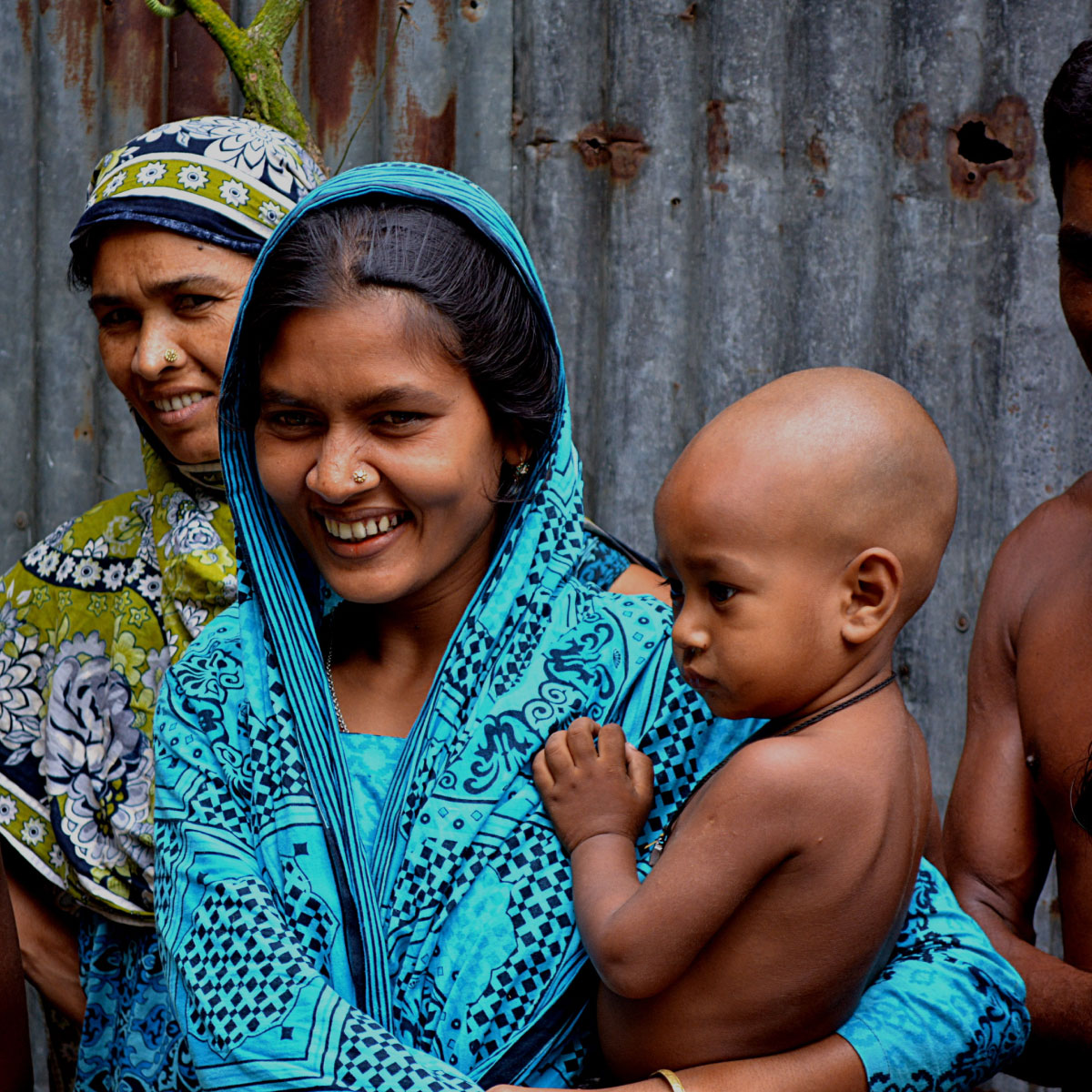
View our resources we have developed as part of the CHORUS consortium on urban health system strengthening, and our four research pillars. We will continue adding to this collection. Please get in touch if you cannot find particular information.

Strengthening Urban Health Systems Through Provider Partnerships: Lessons from Four Countries

Mainstreaming Health in All Sectors to Address Priority Communicable and Non-Communicable Diseases in Urban Areas in Enugu State, Nigeria
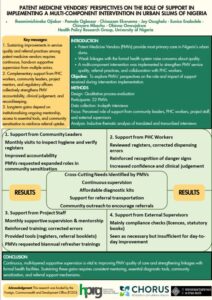
Patent Medicine Vendors’ Perspectives on the Role of Support in Implementing a Multi-Component Intervention in Urban Slums of Nigeria
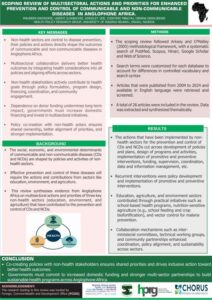
Scoping Review of Multisectoral Actions and Priorities for Enhanced Prevention and Control of Communicable and Non-Communicable Diseases in Anglophone Africa



Exploring Facilitators and Barriers to Multisectoral Collaboration for Population Health Improvement in an Urban Setting in Ghana

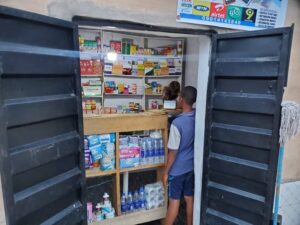
Informal health care providers in Nigerian slums: Perspectives on how to link them with the formal health system
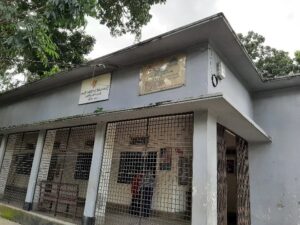
Designing a Strategic Purchasing Framework for Urban Primary Health Care Services in Bangladesh: A Protocol for a Mixed-Method Study with a Discrete Choice Experiment

Willingness to pay for improved quality of services from informal health providers in urban slums in Nigeria

Building linkages between private pharmacies and primary care to improve treatment of diabetes and hypertension in an urban city of Nepal: A protocol for implementation research study
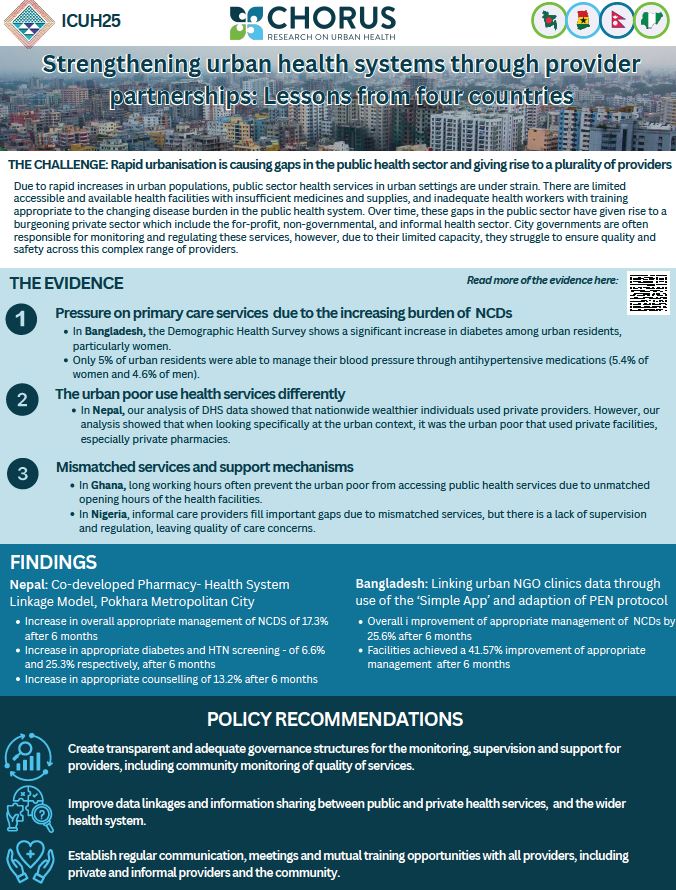
Strengthening Urban Health Systems Through Provider Partnerships: Lessons from Four Countries
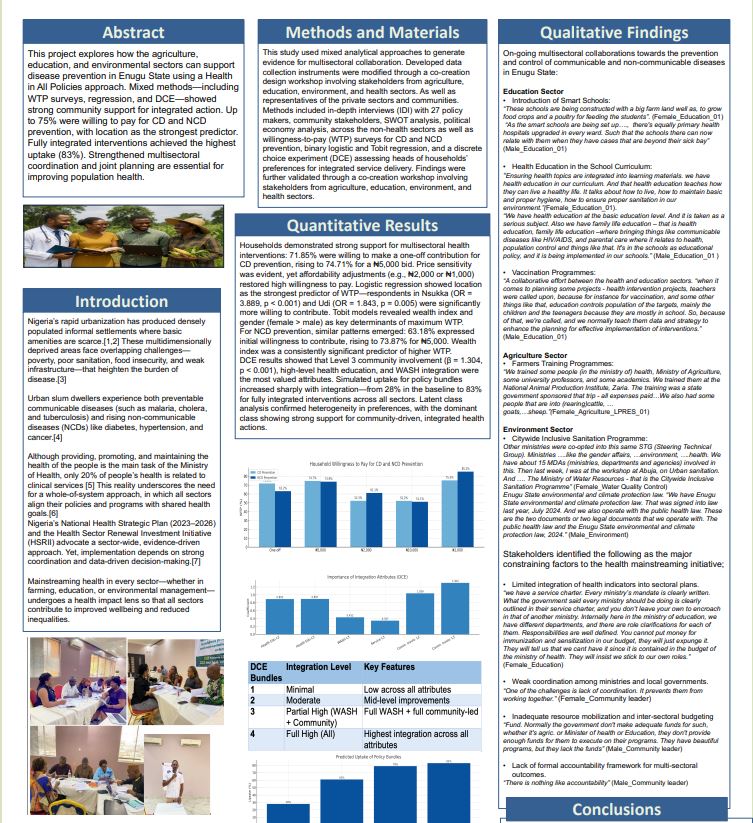
Mainstreaming Health in All Sectors to Address Priority Communicable and Non-Communicable Diseases in Urban Areas in Enugu State, Nigeria

Patent Medicine Vendors’ Perspectives on the Role of Support in Implementing a Multi-Component Intervention in Urban Slums of Nigeria
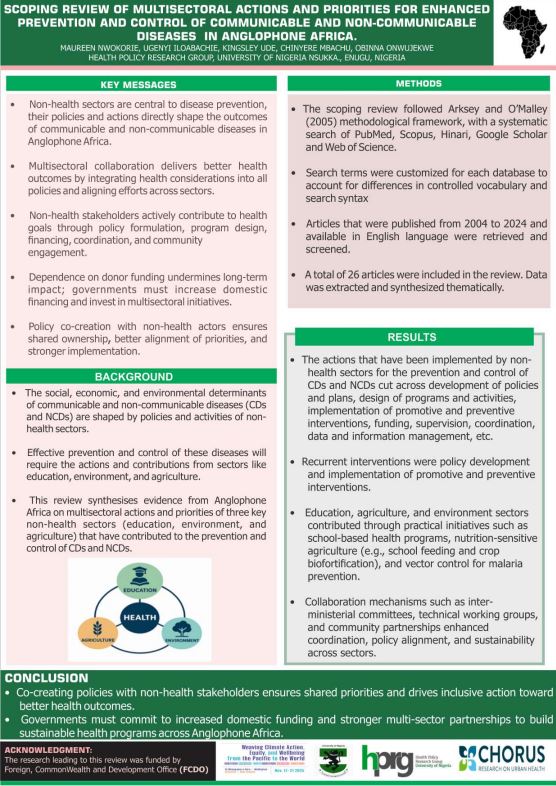
Scoping Review of Multisectoral Actions and Priorities for Enhanced Prevention and Control of Communicable and Non-Communicable Diseases in Anglophone Africa
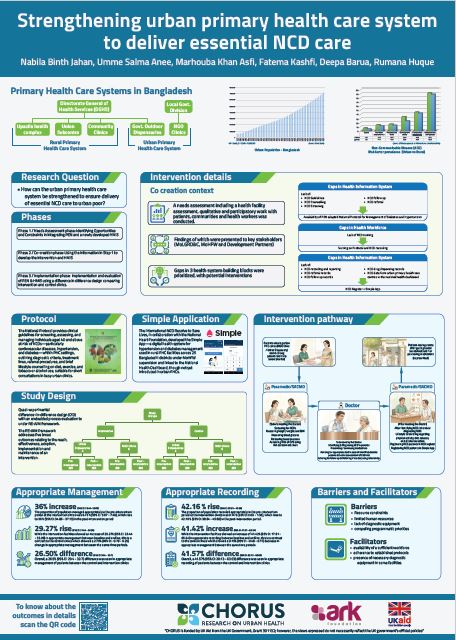
Strengthening the Urban Primary Health Care System to Deliver Essential NCD Care

Health in All Policies: The Key to Population Health Improvement in Urban Ghana
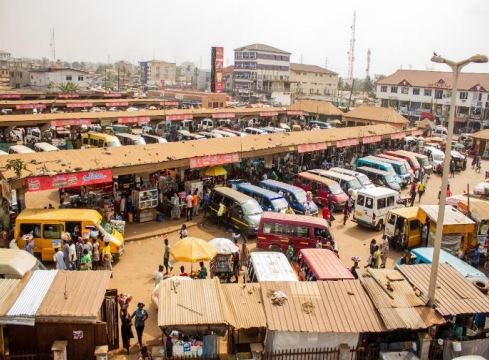
Exploring Facilitators and Barriers to Multisectoral Collaboration for Population Health Improvement in an Urban Setting in Ghana

Informal health care providers in Nigerian slums: Perspectives on how to link them with the formal health system
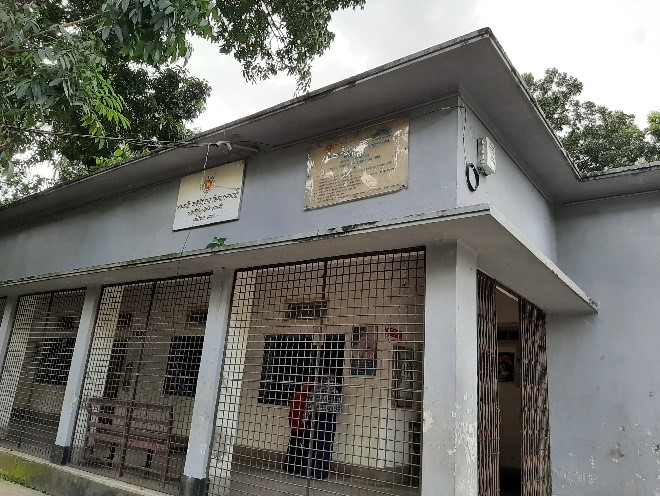
Designing a Strategic Purchasing Framework for Urban Primary Health Care Services in Bangladesh: A Protocol for a Mixed-Method Study with a Discrete Choice Experiment

Willingness to pay for improved quality of services from informal health providers in urban slums in Nigeria

Building linkages between private pharmacies and primary care to improve treatment of diabetes and hypertension in an urban city of Nepal: A protocol for implementation research study
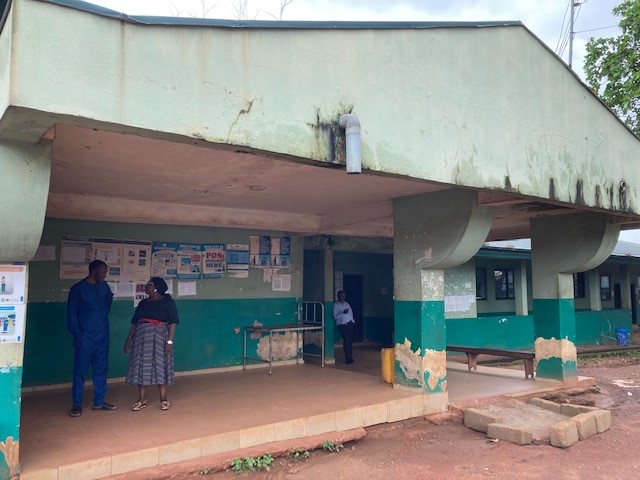
Referral experiences of healthcare consumers: results from a cross-sectional study in urban slums in Southeast Nigeria

Study protocol for developing an urban deprivation index in Nepal: Data review, measurement, visualization and real-world application in urban poverty alleviation

Social determinants and risk factors associated with non-communicable diseases among urban population in Nepal: A comparative study of poor, middle and rich wealth categories of urban population using STEPS survey

Community leaders’ perspectives on linking formal and informal health providers in Nigerian urban slums: a qualitative study

Factors affecting out-of-pocket expenditures for chronic and acute illnesses in Bangladesh

Inequities in Household Out-Of-Pocket Spending Among Urban Slum Dwellers in Southeast Nigeria

Solving delayed referrals of childbirth cases from unskilled to skilled birth attendants in Nigerian urban communities: A case study exploration of new frontiers
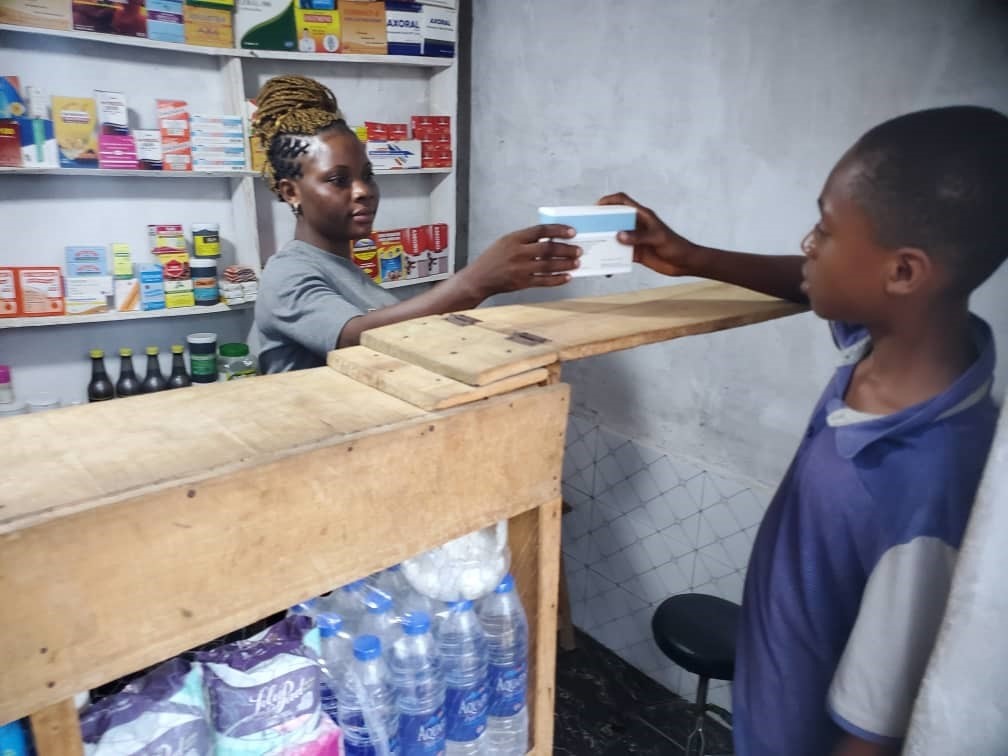
Assessing informal healthcare providers’ knowledge of diagnosis and treatment of malaria and diarrhea: evidence from urban informal settlements in Southeast Nigeria
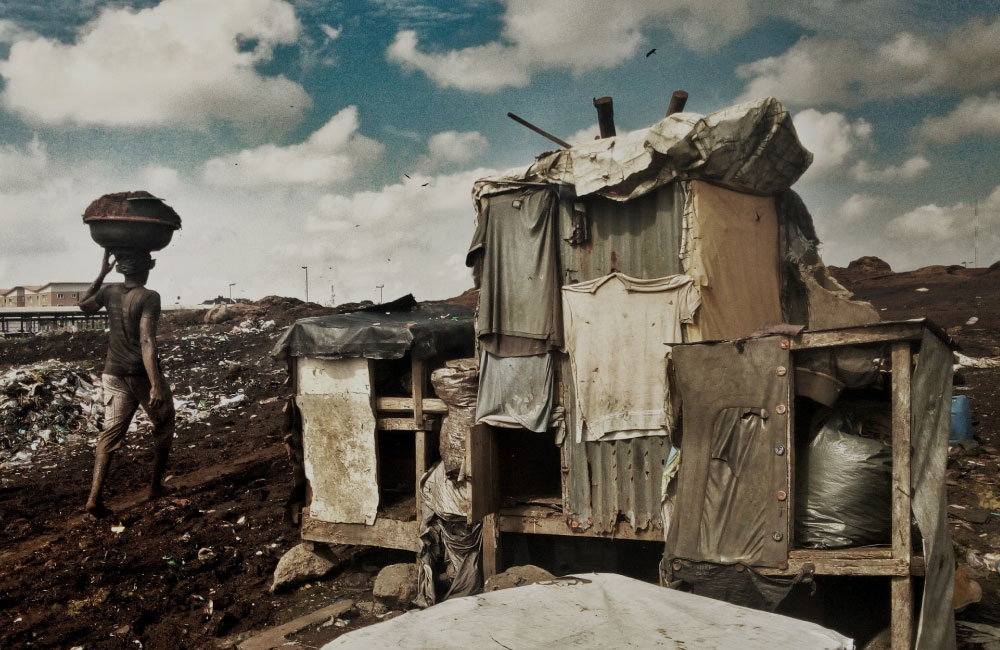
A scoping review of the roles of stakeholders and coordination mechanisms for enhanced multi-sectoral and multi-level interventions in COVID-19 response in Nigeria
Institutionalizing linkages between informal healthcare providers and the formal health system in Nigeria: what are the facilitating and constraining contextual influences?
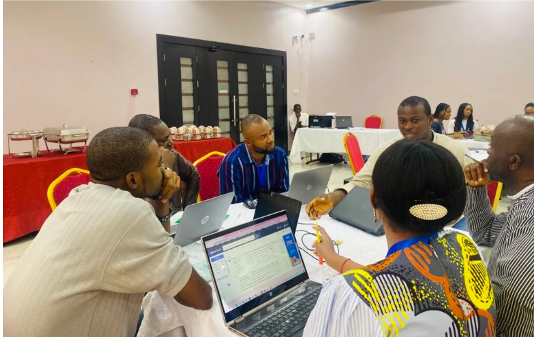
Enhancing the role of mass media in the translation of evidence from health policy and systems research in Nigeria
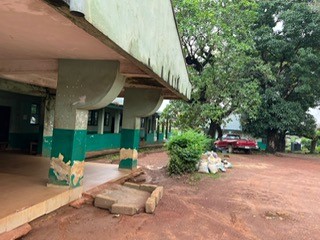
Informal–Formal Healthcare Services Delivery Nexus in Nigeria’s Urban Slums: A Reconnaissance Study
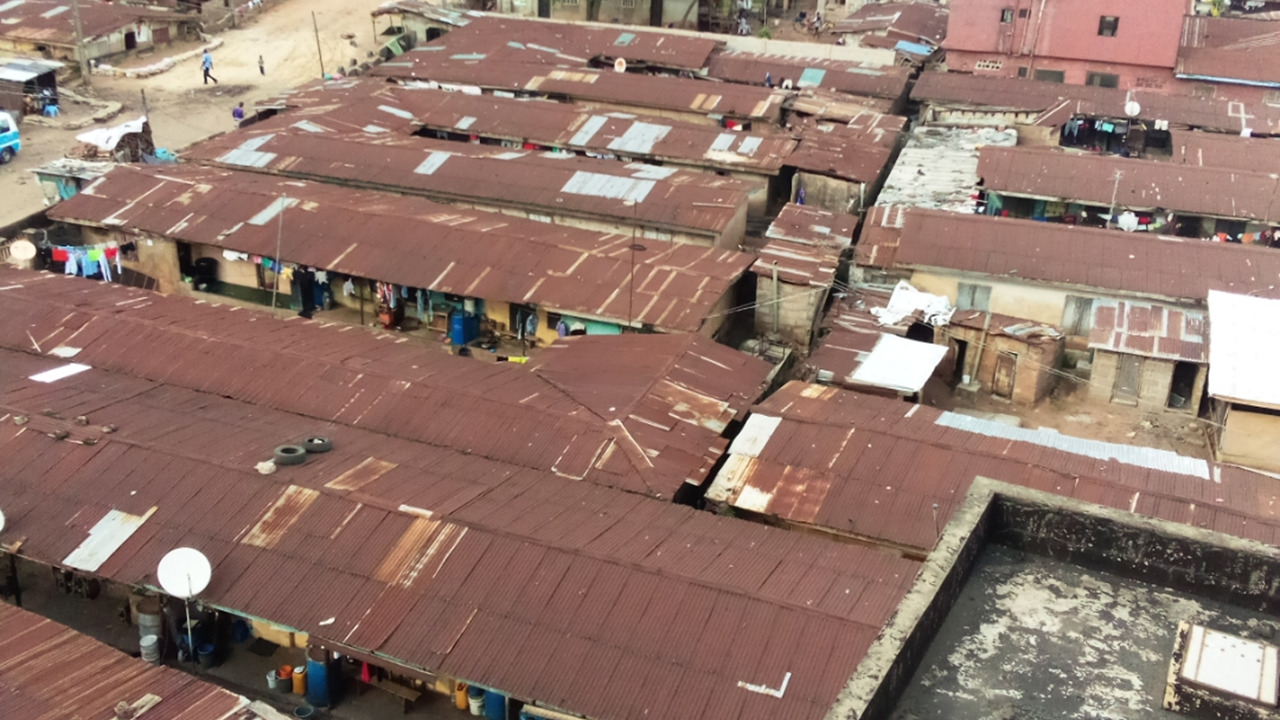
Assessing Knowledge of Hypertension and Diabetes Mellitus among Informal Healthcare Providers in Urban Slums in Southeastern Nigeria
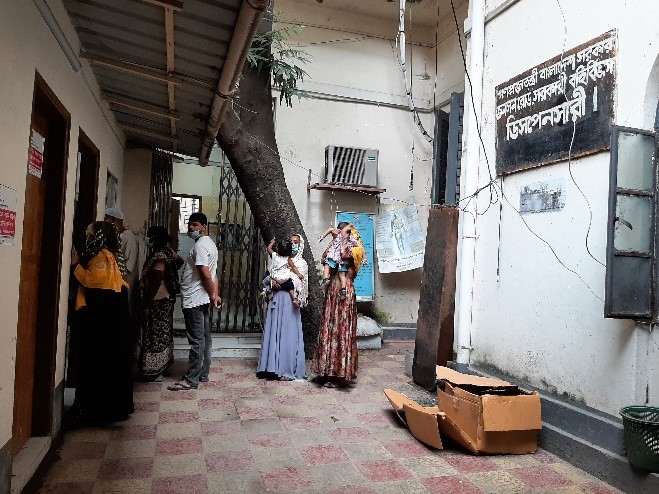
Choice of Primary Health Care Providers among Population in Urban Areas of Low- and Middle-Income Countries – A Protocol for Systematic review of literature
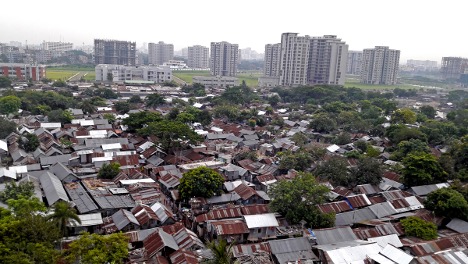
Assessment of socioeconomic and health vulnerability among urban slum dwellers in Bangladesh: a cross-sectional study
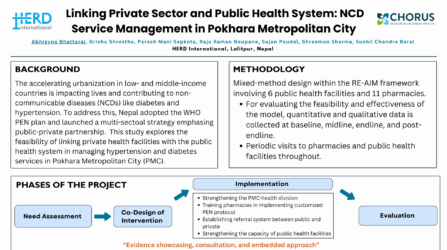
Linking the Private Sector and Public Health System – NCD Service Management in Pokhara Metropolitan City
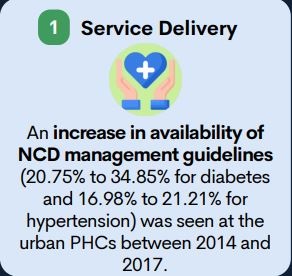
Changes in NCD Management within Urban Primary Health Care System: Analysis of 2014 and 2017 National Surveys

Where do Bangladesh’s urban poor go for NCD care, and do they receive adequate advice for NCD prevention and control?
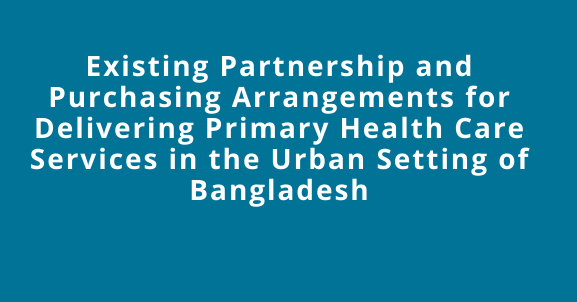
An overview of the Existing Partnership and Purchasing Arrangements for Delivering Primary Health Care Services in the Urban Settings of Bangladesh: A Scoping Review

An Analysis of Urban Health Policies in Bangladesh and Identifying Gaps between Policies and Practices
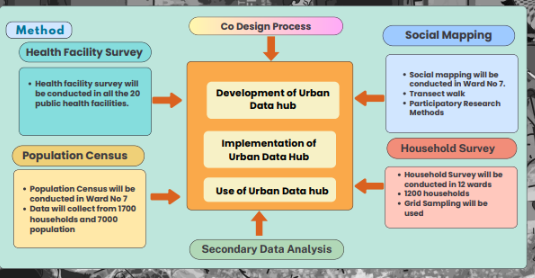
Co-designing an Urban Health Data Hub Promoting Evidence Use in Urban Health Systems in Budhanilakantha Municipality, Nepal
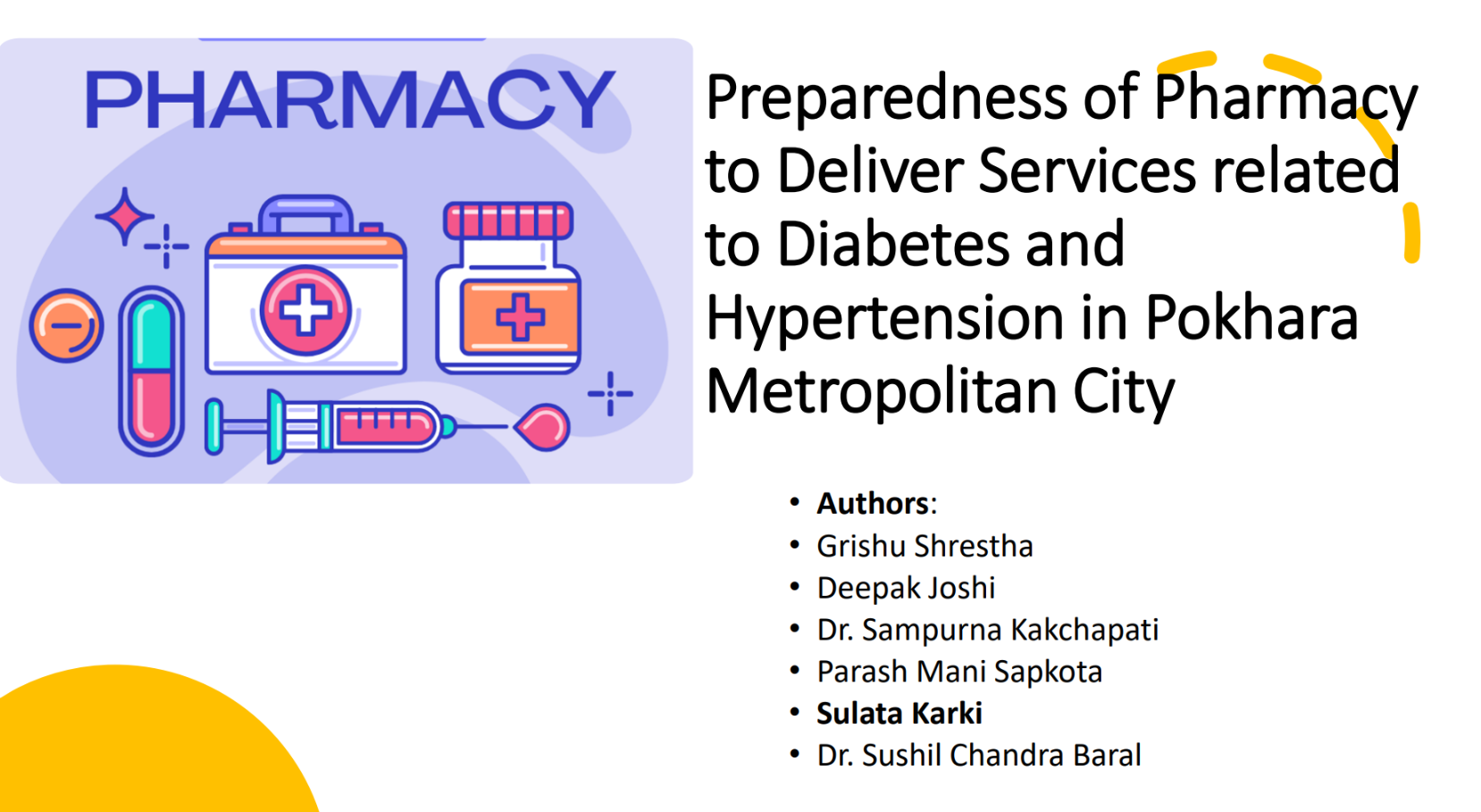
Quality of healthcare services delivered by pharmacies: plurality of providers, an opportunity to collaborate in Pokhara Metropolitan City of Nepal
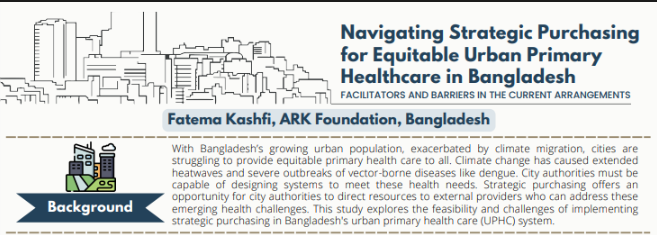
Navigating Strategic Purchasing for Equitable Urban Primary Healthcare in Bangladesh

The Need for Social Justice Professionals in Addressing Vital Concerns in Primary Health Centres that Inhibit Utilisation by Slum Dwellers
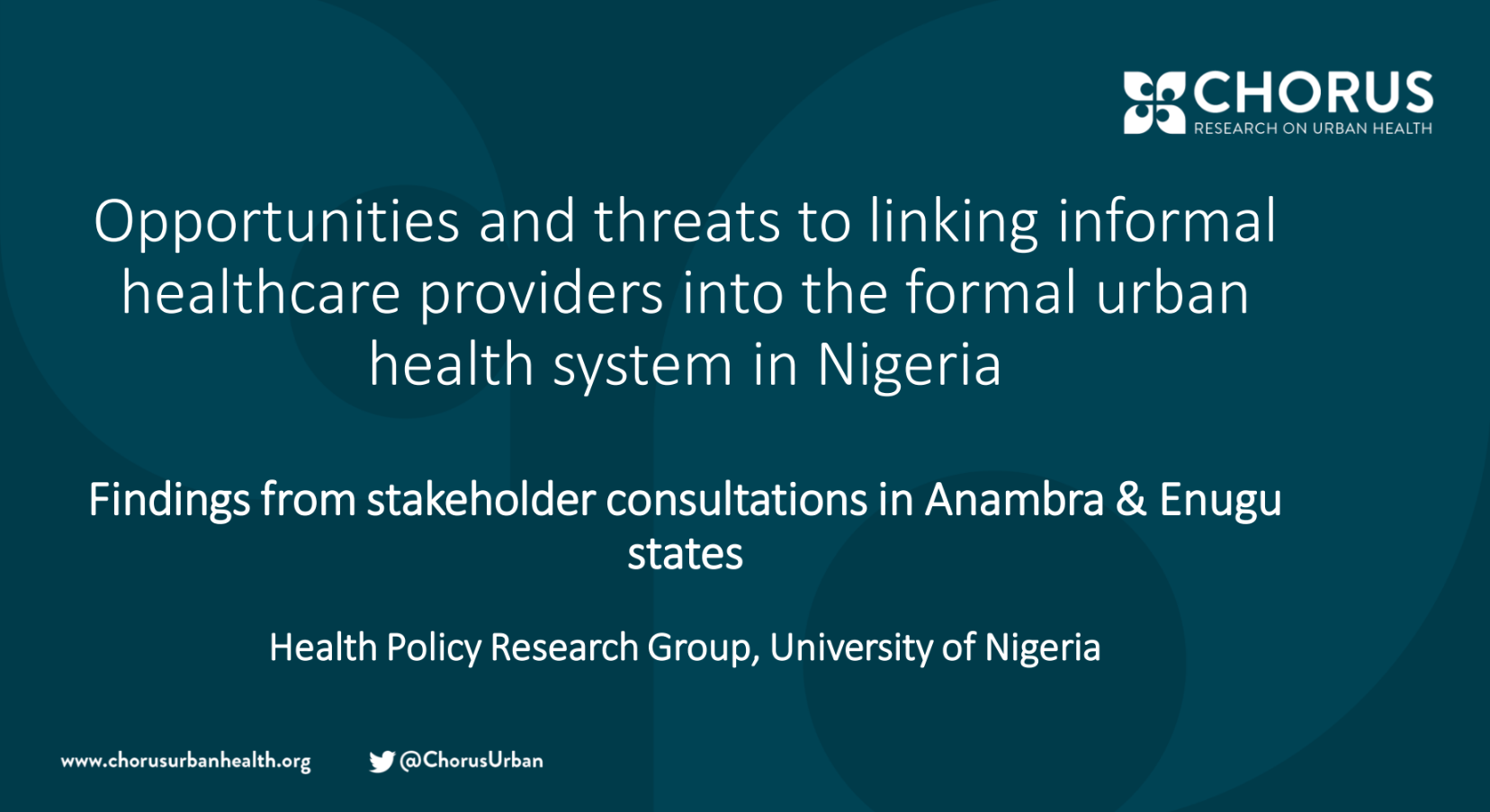
Opportunities and threats to linking informal healthcare providers into the formal urban health system in Nigeria
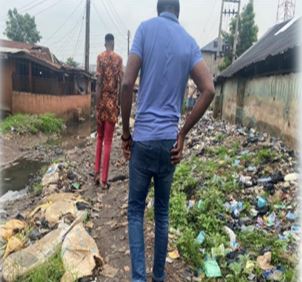
Reconnaissance Approach for Identifying & Characterising Informal Providers in Urban Slums
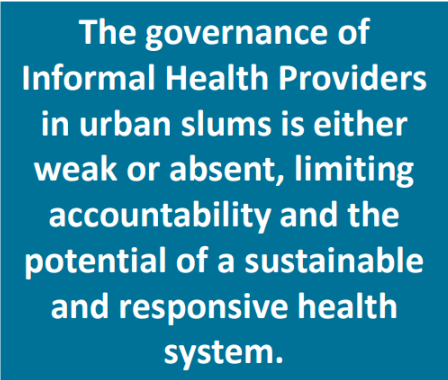
Examining Governance and Leadership of Informal Healthcare Providers in Urban Slums of Nigeria
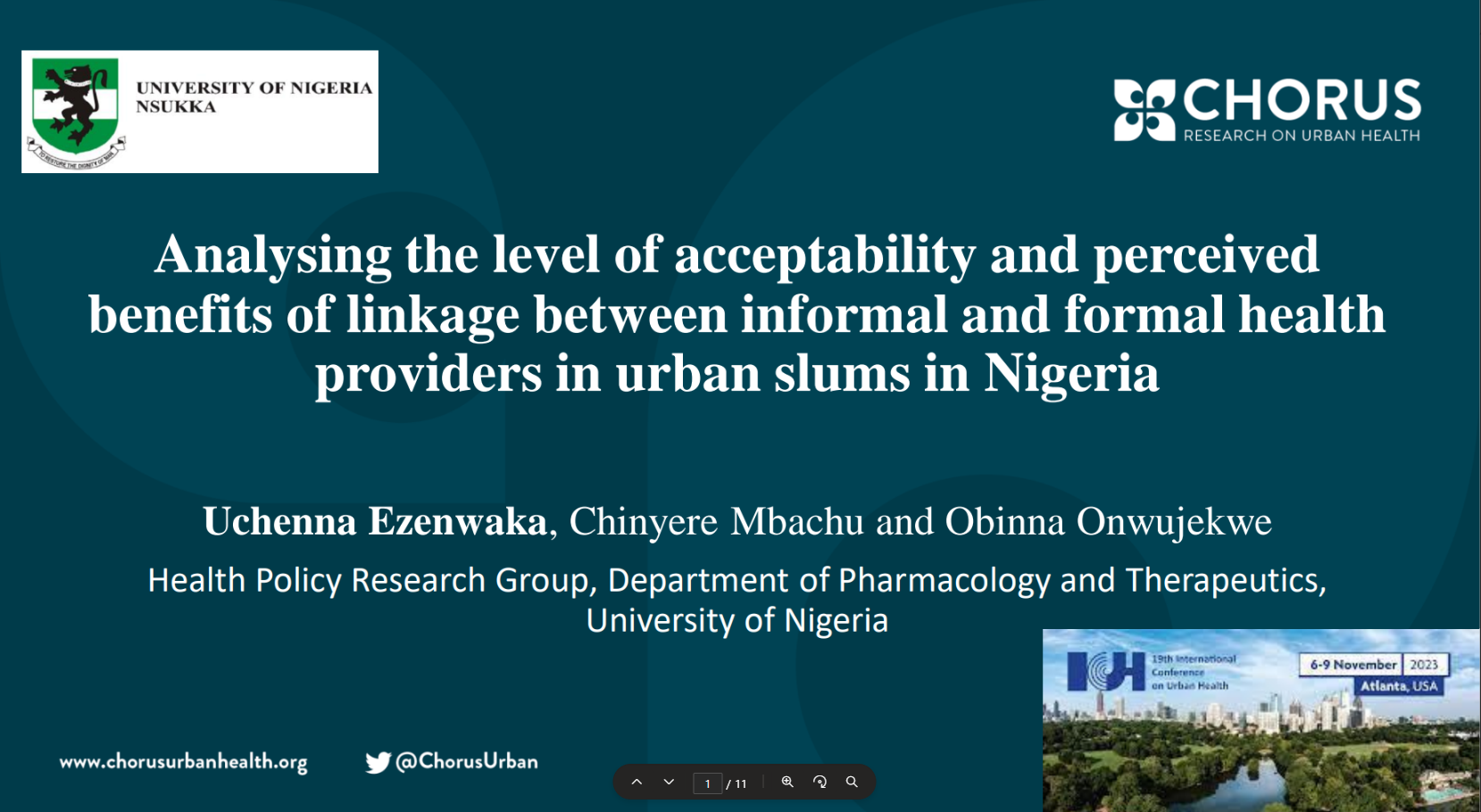
Analysing the level of acceptability and perceived benefits of linkage between informal and formal health providers

Implementation of the Community-based Health Planning and Services (CHPS) in rural and urban Ghana: a history and systematic review of what works, for whom and why

To What Extent Are Informal Healthcare Providers in Slums Linked to the Formal Health System in Providing Services in Sub-Sahara Africa? A 12-Year Scoping Review

Informal–Formal Healthcare Services Delivery Nexus in Nigeria’s Urban Slums: A Reconnaissance Study
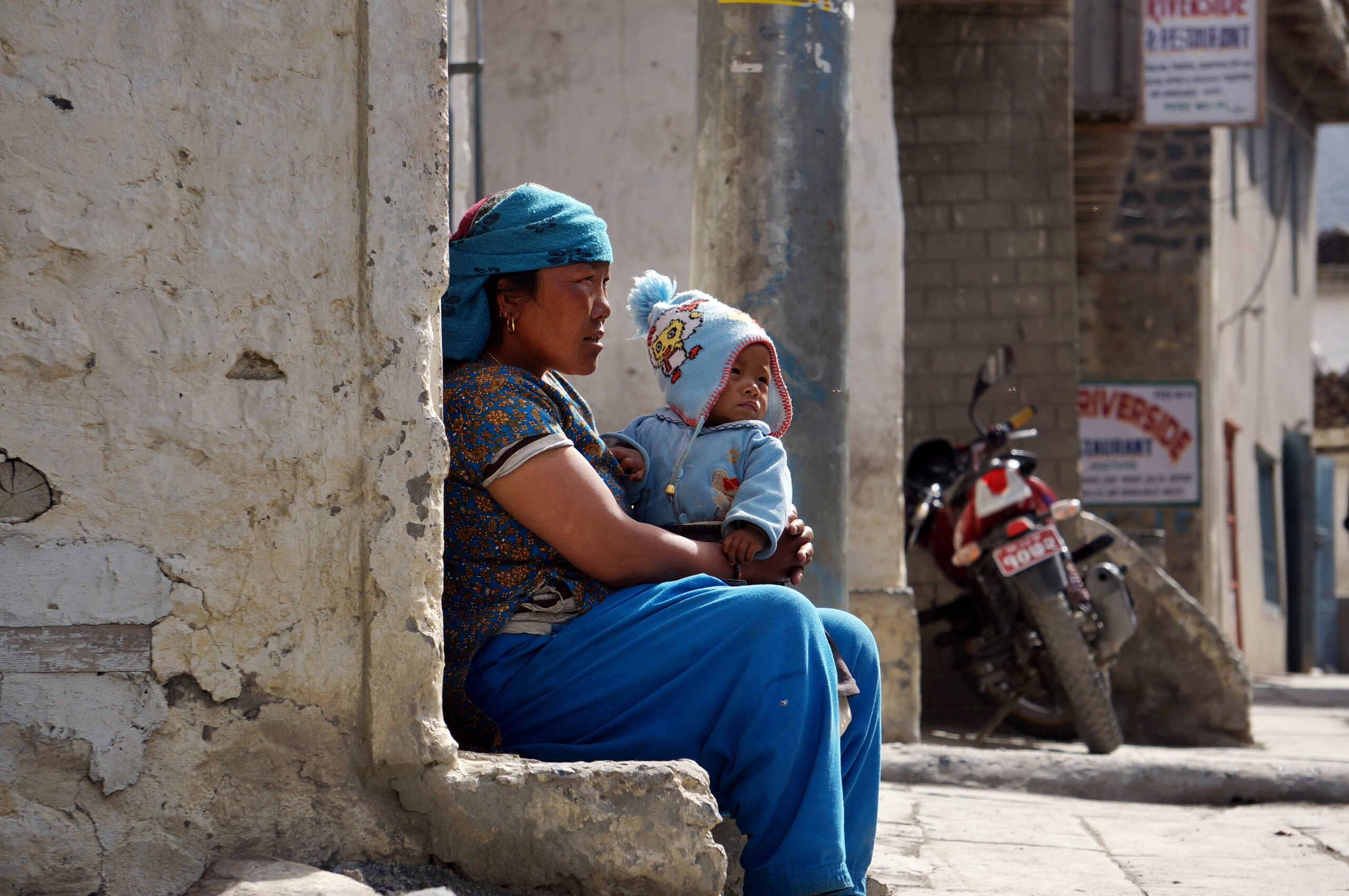
Association between media exposure and maternal health service use in Nepal: A further analysis of Nepal Demographic and Health Survey-2022
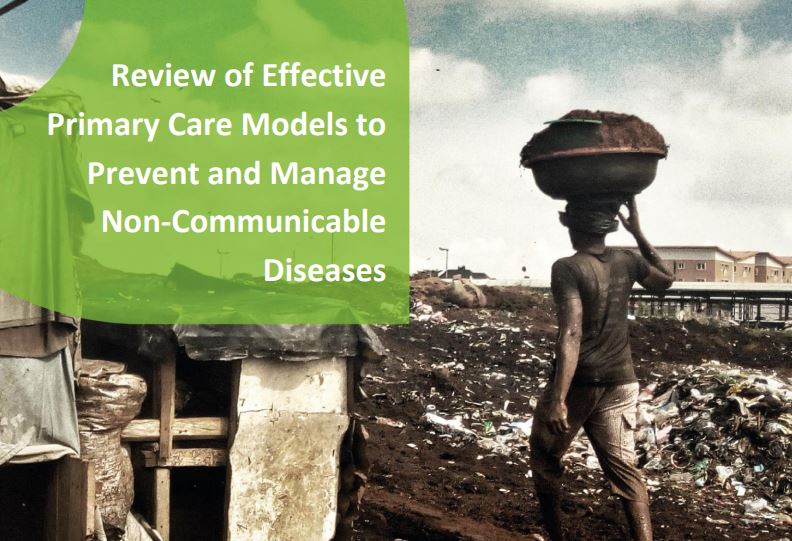
Review of Effective Primary Care Models to Prevent and Manage Non-Communicable Diseases

Assessment of Public-Private Partnership (PPP) Models in Health Systems in Least Developed, Low Income and Lower-Middle-Income Countries and Territories : A Protocol for a Systematic Review
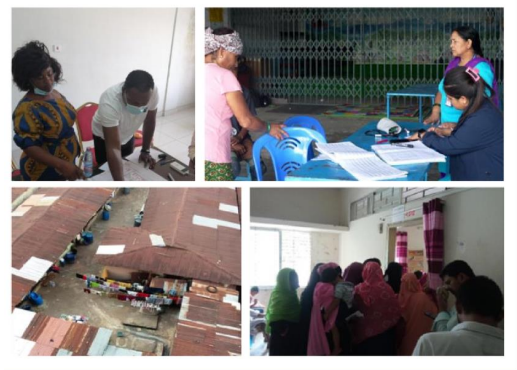
The Influence of Changing Gender and Social Norms on Health Seeking Behaviour and Health Systems in Cities

Preparedness of Urban Primary Healthcare Centres of Bangladesh in Managing Diabetes Mellitus and Hypertension

Conceptual framework for systemic capacity strengthening for health policy and systems research

Strengths, disconnects and lessons in local and central governance of the response to the first wave of COVID-19 in Ghana

The Role of Contextual Factors in Private Sector Engagement: A Case Study of Private Sector Contribution to COVID-19 Mitigation in Nigeria

The Role of the Private Sector in the COVID-19 Pandemic: Experiences From Four Health Systems

“Domains of deprivation framework” for mapping slums, informal settlements, and other deprived areas in LMICs to improve urban planning and policy: A scoping review

Stakeholders’ perspectives and willingness to institutionalize linkages between the formal health system and informal healthcare providers in urban slums in southeast, Nigeria

Examining the roles of stakeholders and evidence in policymaking for inclusive urban development in Nigeria – findings from a policy analysis
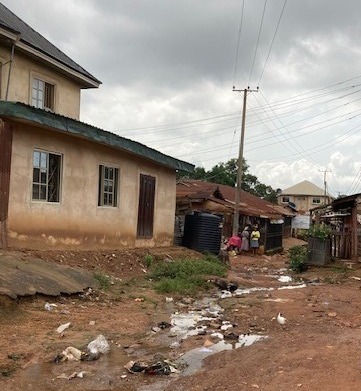
Analysis of equity and social inclusiveness of national urban development policies and strategies through the lenses of health and nutrition

Strengthening Primary Health to achieve Universal Health Coverage in Bangladesh

Stakeholders’ Perspectives on the Unmet Needs and Health Priorities of the Urban Poor in South-East Nigeria
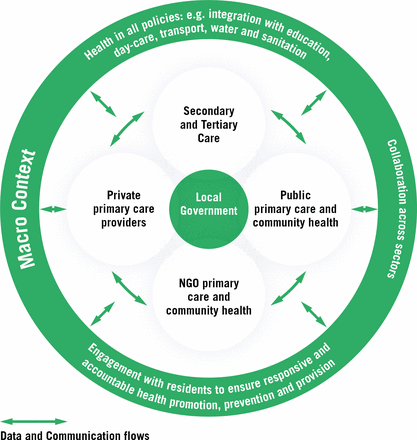
Rethinking health systems in the context of urbanisation: challenges from four rapidly urbanising low-income and middle-income countries

Strengthening Urban Health Systems Through Provider Partnerships: Lessons from Four Countries

Mainstreaming Health in All Sectors to Address Priority Communicable and Non-Communicable Diseases in Urban Areas in Enugu State, Nigeria

Patent Medicine Vendors’ Perspectives on the Role of Support in Implementing a Multi-Component Intervention in Urban Slums of Nigeria

Scoping Review of Multisectoral Actions and Priorities for Enhanced Prevention and Control of Communicable and Non-Communicable Diseases in Anglophone Africa

Strengthening the Urban Primary Health Care System to Deliver Essential NCD Care

Health in All Policies: The Key to Population Health Improvement in Urban Ghana

Exploring Facilitators and Barriers to Multisectoral Collaboration for Population Health Improvement in an Urban Setting in Ghana

Informal health care providers in Nigerian slums: Perspectives on how to link them with the formal health system

Designing a Strategic Purchasing Framework for Urban Primary Health Care Services in Bangladesh: A Protocol for a Mixed-Method Study with a Discrete Choice Experiment

Willingness to pay for improved quality of services from informal health providers in urban slums in Nigeria

Building linkages between private pharmacies and primary care to improve treatment of diabetes and hypertension in an urban city of Nepal: A protocol for implementation research study

Referral experiences of healthcare consumers: results from a cross-sectional study in urban slums in Southeast Nigeria

Study protocol for developing an urban deprivation index in Nepal: Data review, measurement, visualization and real-world application in urban poverty alleviation

Social determinants and risk factors associated with non-communicable diseases among urban population in Nepal: A comparative study of poor, middle and rich wealth categories of urban population using STEPS survey

Community leaders’ perspectives on linking formal and informal health providers in Nigerian urban slums: a qualitative study

Factors affecting out-of-pocket expenditures for chronic and acute illnesses in Bangladesh

Inequities in Household Out-Of-Pocket Spending Among Urban Slum Dwellers in Southeast Nigeria

Solving delayed referrals of childbirth cases from unskilled to skilled birth attendants in Nigerian urban communities: A case study exploration of new frontiers

Assessing informal healthcare providers’ knowledge of diagnosis and treatment of malaria and diarrhea: evidence from urban informal settlements in Southeast Nigeria

A scoping review of the roles of stakeholders and coordination mechanisms for enhanced multi-sectoral and multi-level interventions in COVID-19 response in Nigeria
Institutionalizing linkages between informal healthcare providers and the formal health system in Nigeria: what are the facilitating and constraining contextual influences?

Enhancing the role of mass media in the translation of evidence from health policy and systems research in Nigeria

Informal–Formal Healthcare Services Delivery Nexus in Nigeria’s Urban Slums: A Reconnaissance Study

Assessing Knowledge of Hypertension and Diabetes Mellitus among Informal Healthcare Providers in Urban Slums in Southeastern Nigeria

Choice of Primary Health Care Providers among Population in Urban Areas of Low- and Middle-Income Countries – A Protocol for Systematic review of literature

Assessment of socioeconomic and health vulnerability among urban slum dwellers in Bangladesh: a cross-sectional study

Linking the Private Sector and Public Health System – NCD Service Management in Pokhara Metropolitan City

Changes in NCD Management within Urban Primary Health Care System: Analysis of 2014 and 2017 National Surveys

Where do Bangladesh’s urban poor go for NCD care, and do they receive adequate advice for NCD prevention and control?

An overview of the Existing Partnership and Purchasing Arrangements for Delivering Primary Health Care Services in the Urban Settings of Bangladesh: A Scoping Review

An Analysis of Urban Health Policies in Bangladesh and Identifying Gaps between Policies and Practices

Co-designing an Urban Health Data Hub Promoting Evidence Use in Urban Health Systems in Budhanilakantha Municipality, Nepal

Quality of healthcare services delivered by pharmacies: plurality of providers, an opportunity to collaborate in Pokhara Metropolitan City of Nepal

Navigating Strategic Purchasing for Equitable Urban Primary Healthcare in Bangladesh

The Need for Social Justice Professionals in Addressing Vital Concerns in Primary Health Centres that Inhibit Utilisation by Slum Dwellers

Opportunities and threats to linking informal healthcare providers into the formal urban health system in Nigeria

Reconnaissance Approach for Identifying & Characterising Informal Providers in Urban Slums

Examining Governance and Leadership of Informal Healthcare Providers in Urban Slums of Nigeria

Analysing the level of acceptability and perceived benefits of linkage between informal and formal health providers

Implementation of the Community-based Health Planning and Services (CHPS) in rural and urban Ghana: a history and systematic review of what works, for whom and why

To What Extent Are Informal Healthcare Providers in Slums Linked to the Formal Health System in Providing Services in Sub-Sahara Africa? A 12-Year Scoping Review

Informal–Formal Healthcare Services Delivery Nexus in Nigeria’s Urban Slums: A Reconnaissance Study

Association between media exposure and maternal health service use in Nepal: A further analysis of Nepal Demographic and Health Survey-2022

Review of Effective Primary Care Models to Prevent and Manage Non-Communicable Diseases

Assessment of Public-Private Partnership (PPP) Models in Health Systems in Least Developed, Low Income and Lower-Middle-Income Countries and Territories : A Protocol for a Systematic Review

The Influence of Changing Gender and Social Norms on Health Seeking Behaviour and Health Systems in Cities

Preparedness of Urban Primary Healthcare Centres of Bangladesh in Managing Diabetes Mellitus and Hypertension

Conceptual framework for systemic capacity strengthening for health policy and systems research

Strengths, disconnects and lessons in local and central governance of the response to the first wave of COVID-19 in Ghana

The Role of Contextual Factors in Private Sector Engagement: A Case Study of Private Sector Contribution to COVID-19 Mitigation in Nigeria

The Role of the Private Sector in the COVID-19 Pandemic: Experiences From Four Health Systems

“Domains of deprivation framework” for mapping slums, informal settlements, and other deprived areas in LMICs to improve urban planning and policy: A scoping review

Stakeholders’ perspectives and willingness to institutionalize linkages between the formal health system and informal healthcare providers in urban slums in southeast, Nigeria

Examining the roles of stakeholders and evidence in policymaking for inclusive urban development in Nigeria – findings from a policy analysis

Analysis of equity and social inclusiveness of national urban development policies and strategies through the lenses of health and nutrition

Strengthening Primary Health to achieve Universal Health Coverage in Bangladesh

Stakeholders’ Perspectives on the Unmet Needs and Health Priorities of the Urban Poor in South-East Nigeria

Rethinking health systems in the context of urbanisation: challenges from four rapidly urbanising low-income and middle-income countries

Strengthening Urban Health Systems Through Provider Partnerships: Lessons from Four Countries

Mainstreaming Health in All Sectors to Address Priority Communicable and Non-Communicable Diseases in Urban Areas in Enugu State, Nigeria

Patent Medicine Vendors’ Perspectives on the Role of Support in Implementing a Multi-Component Intervention in Urban Slums of Nigeria

Scoping Review of Multisectoral Actions and Priorities for Enhanced Prevention and Control of Communicable and Non-Communicable Diseases in Anglophone Africa

Strengthening the Urban Primary Health Care System to Deliver Essential NCD Care

Health in All Policies: The Key to Population Health Improvement in Urban Ghana

Exploring Facilitators and Barriers to Multisectoral Collaboration for Population Health Improvement in an Urban Setting in Ghana

Informal health care providers in Nigerian slums: Perspectives on how to link them with the formal health system

Designing a Strategic Purchasing Framework for Urban Primary Health Care Services in Bangladesh: A Protocol for a Mixed-Method Study with a Discrete Choice Experiment

Willingness to pay for improved quality of services from informal health providers in urban slums in Nigeria

Building linkages between private pharmacies and primary care to improve treatment of diabetes and hypertension in an urban city of Nepal: A protocol for implementation research study

Referral experiences of healthcare consumers: results from a cross-sectional study in urban slums in Southeast Nigeria

Study protocol for developing an urban deprivation index in Nepal: Data review, measurement, visualization and real-world application in urban poverty alleviation

Social determinants and risk factors associated with non-communicable diseases among urban population in Nepal: A comparative study of poor, middle and rich wealth categories of urban population using STEPS survey

Community leaders’ perspectives on linking formal and informal health providers in Nigerian urban slums: a qualitative study

Factors affecting out-of-pocket expenditures for chronic and acute illnesses in Bangladesh

Inequities in Household Out-Of-Pocket Spending Among Urban Slum Dwellers in Southeast Nigeria

Solving delayed referrals of childbirth cases from unskilled to skilled birth attendants in Nigerian urban communities: A case study exploration of new frontiers

Assessing informal healthcare providers’ knowledge of diagnosis and treatment of malaria and diarrhea: evidence from urban informal settlements in Southeast Nigeria

A scoping review of the roles of stakeholders and coordination mechanisms for enhanced multi-sectoral and multi-level interventions in COVID-19 response in Nigeria
Institutionalizing linkages between informal healthcare providers and the formal health system in Nigeria: what are the facilitating and constraining contextual influences?

Enhancing the role of mass media in the translation of evidence from health policy and systems research in Nigeria

Informal–Formal Healthcare Services Delivery Nexus in Nigeria’s Urban Slums: A Reconnaissance Study

Assessing Knowledge of Hypertension and Diabetes Mellitus among Informal Healthcare Providers in Urban Slums in Southeastern Nigeria

Choice of Primary Health Care Providers among Population in Urban Areas of Low- and Middle-Income Countries – A Protocol for Systematic review of literature

Assessment of socioeconomic and health vulnerability among urban slum dwellers in Bangladesh: a cross-sectional study

Linking the Private Sector and Public Health System – NCD Service Management in Pokhara Metropolitan City

Changes in NCD Management within Urban Primary Health Care System: Analysis of 2014 and 2017 National Surveys

Where do Bangladesh’s urban poor go for NCD care, and do they receive adequate advice for NCD prevention and control?

An overview of the Existing Partnership and Purchasing Arrangements for Delivering Primary Health Care Services in the Urban Settings of Bangladesh: A Scoping Review

An Analysis of Urban Health Policies in Bangladesh and Identifying Gaps between Policies and Practices

Co-designing an Urban Health Data Hub Promoting Evidence Use in Urban Health Systems in Budhanilakantha Municipality, Nepal

Quality of healthcare services delivered by pharmacies: plurality of providers, an opportunity to collaborate in Pokhara Metropolitan City of Nepal

Navigating Strategic Purchasing for Equitable Urban Primary Healthcare in Bangladesh

The Need for Social Justice Professionals in Addressing Vital Concerns in Primary Health Centres that Inhibit Utilisation by Slum Dwellers

Opportunities and threats to linking informal healthcare providers into the formal urban health system in Nigeria

Reconnaissance Approach for Identifying & Characterising Informal Providers in Urban Slums

Examining Governance and Leadership of Informal Healthcare Providers in Urban Slums of Nigeria

Analysing the level of acceptability and perceived benefits of linkage between informal and formal health providers

Implementation of the Community-based Health Planning and Services (CHPS) in rural and urban Ghana: a history and systematic review of what works, for whom and why

To What Extent Are Informal Healthcare Providers in Slums Linked to the Formal Health System in Providing Services in Sub-Sahara Africa? A 12-Year Scoping Review

Informal–Formal Healthcare Services Delivery Nexus in Nigeria’s Urban Slums: A Reconnaissance Study

Association between media exposure and maternal health service use in Nepal: A further analysis of Nepal Demographic and Health Survey-2022

Review of Effective Primary Care Models to Prevent and Manage Non-Communicable Diseases

Assessment of Public-Private Partnership (PPP) Models in Health Systems in Least Developed, Low Income and Lower-Middle-Income Countries and Territories : A Protocol for a Systematic Review

The Influence of Changing Gender and Social Norms on Health Seeking Behaviour and Health Systems in Cities

Preparedness of Urban Primary Healthcare Centres of Bangladesh in Managing Diabetes Mellitus and Hypertension

Conceptual framework for systemic capacity strengthening for health policy and systems research

Strengths, disconnects and lessons in local and central governance of the response to the first wave of COVID-19 in Ghana

The Role of Contextual Factors in Private Sector Engagement: A Case Study of Private Sector Contribution to COVID-19 Mitigation in Nigeria

The Role of the Private Sector in the COVID-19 Pandemic: Experiences From Four Health Systems

“Domains of deprivation framework” for mapping slums, informal settlements, and other deprived areas in LMICs to improve urban planning and policy: A scoping review

Stakeholders’ perspectives and willingness to institutionalize linkages between the formal health system and informal healthcare providers in urban slums in southeast, Nigeria

Examining the roles of stakeholders and evidence in policymaking for inclusive urban development in Nigeria – findings from a policy analysis

Analysis of equity and social inclusiveness of national urban development policies and strategies through the lenses of health and nutrition

Strengthening Primary Health to achieve Universal Health Coverage in Bangladesh

Stakeholders’ Perspectives on the Unmet Needs and Health Priorities of the Urban Poor in South-East Nigeria

Rethinking health systems in the context of urbanisation: challenges from four rapidly urbanising low-income and middle-income countries

Strengthening Urban Health Systems Through Provider Partnerships: Lessons from Four Countries

Mainstreaming Health in All Sectors to Address Priority Communicable and Non-Communicable Diseases in Urban Areas in Enugu State, Nigeria

Patent Medicine Vendors’ Perspectives on the Role of Support in Implementing a Multi-Component Intervention in Urban Slums of Nigeria

Scoping Review of Multisectoral Actions and Priorities for Enhanced Prevention and Control of Communicable and Non-Communicable Diseases in Anglophone Africa

Strengthening the Urban Primary Health Care System to Deliver Essential NCD Care

Health in All Policies: The Key to Population Health Improvement in Urban Ghana

Exploring Facilitators and Barriers to Multisectoral Collaboration for Population Health Improvement in an Urban Setting in Ghana

Informal health care providers in Nigerian slums: Perspectives on how to link them with the formal health system

Designing a Strategic Purchasing Framework for Urban Primary Health Care Services in Bangladesh: A Protocol for a Mixed-Method Study with a Discrete Choice Experiment

Willingness to pay for improved quality of services from informal health providers in urban slums in Nigeria

Building linkages between private pharmacies and primary care to improve treatment of diabetes and hypertension in an urban city of Nepal: A protocol for implementation research study

Referral experiences of healthcare consumers: results from a cross-sectional study in urban slums in Southeast Nigeria

Study protocol for developing an urban deprivation index in Nepal: Data review, measurement, visualization and real-world application in urban poverty alleviation

Social determinants and risk factors associated with non-communicable diseases among urban population in Nepal: A comparative study of poor, middle and rich wealth categories of urban population using STEPS survey

Community leaders’ perspectives on linking formal and informal health providers in Nigerian urban slums: a qualitative study

Factors affecting out-of-pocket expenditures for chronic and acute illnesses in Bangladesh

Inequities in Household Out-Of-Pocket Spending Among Urban Slum Dwellers in Southeast Nigeria

Solving delayed referrals of childbirth cases from unskilled to skilled birth attendants in Nigerian urban communities: A case study exploration of new frontiers

Assessing informal healthcare providers’ knowledge of diagnosis and treatment of malaria and diarrhea: evidence from urban informal settlements in Southeast Nigeria

A scoping review of the roles of stakeholders and coordination mechanisms for enhanced multi-sectoral and multi-level interventions in COVID-19 response in Nigeria
Institutionalizing linkages between informal healthcare providers and the formal health system in Nigeria: what are the facilitating and constraining contextual influences?

Enhancing the role of mass media in the translation of evidence from health policy and systems research in Nigeria

Informal–Formal Healthcare Services Delivery Nexus in Nigeria’s Urban Slums: A Reconnaissance Study

Assessing Knowledge of Hypertension and Diabetes Mellitus among Informal Healthcare Providers in Urban Slums in Southeastern Nigeria

Choice of Primary Health Care Providers among Population in Urban Areas of Low- and Middle-Income Countries – A Protocol for Systematic review of literature

Assessment of socioeconomic and health vulnerability among urban slum dwellers in Bangladesh: a cross-sectional study

Linking the Private Sector and Public Health System – NCD Service Management in Pokhara Metropolitan City

Changes in NCD Management within Urban Primary Health Care System: Analysis of 2014 and 2017 National Surveys

Where do Bangladesh’s urban poor go for NCD care, and do they receive adequate advice for NCD prevention and control?

An overview of the Existing Partnership and Purchasing Arrangements for Delivering Primary Health Care Services in the Urban Settings of Bangladesh: A Scoping Review

An Analysis of Urban Health Policies in Bangladesh and Identifying Gaps between Policies and Practices

Co-designing an Urban Health Data Hub Promoting Evidence Use in Urban Health Systems in Budhanilakantha Municipality, Nepal

Quality of healthcare services delivered by pharmacies: plurality of providers, an opportunity to collaborate in Pokhara Metropolitan City of Nepal

Navigating Strategic Purchasing for Equitable Urban Primary Healthcare in Bangladesh

The Need for Social Justice Professionals in Addressing Vital Concerns in Primary Health Centres that Inhibit Utilisation by Slum Dwellers

Opportunities and threats to linking informal healthcare providers into the formal urban health system in Nigeria

Reconnaissance Approach for Identifying & Characterising Informal Providers in Urban Slums

Examining Governance and Leadership of Informal Healthcare Providers in Urban Slums of Nigeria

Analysing the level of acceptability and perceived benefits of linkage between informal and formal health providers

Implementation of the Community-based Health Planning and Services (CHPS) in rural and urban Ghana: a history and systematic review of what works, for whom and why

To What Extent Are Informal Healthcare Providers in Slums Linked to the Formal Health System in Providing Services in Sub-Sahara Africa? A 12-Year Scoping Review

Informal–Formal Healthcare Services Delivery Nexus in Nigeria’s Urban Slums: A Reconnaissance Study

Association between media exposure and maternal health service use in Nepal: A further analysis of Nepal Demographic and Health Survey-2022

Review of Effective Primary Care Models to Prevent and Manage Non-Communicable Diseases

Assessment of Public-Private Partnership (PPP) Models in Health Systems in Least Developed, Low Income and Lower-Middle-Income Countries and Territories : A Protocol for a Systematic Review

The Influence of Changing Gender and Social Norms on Health Seeking Behaviour and Health Systems in Cities

Preparedness of Urban Primary Healthcare Centres of Bangladesh in Managing Diabetes Mellitus and Hypertension

Conceptual framework for systemic capacity strengthening for health policy and systems research

Strengths, disconnects and lessons in local and central governance of the response to the first wave of COVID-19 in Ghana

The Role of Contextual Factors in Private Sector Engagement: A Case Study of Private Sector Contribution to COVID-19 Mitigation in Nigeria

The Role of the Private Sector in the COVID-19 Pandemic: Experiences From Four Health Systems

“Domains of deprivation framework” for mapping slums, informal settlements, and other deprived areas in LMICs to improve urban planning and policy: A scoping review

Stakeholders’ perspectives and willingness to institutionalize linkages between the formal health system and informal healthcare providers in urban slums in southeast, Nigeria

Examining the roles of stakeholders and evidence in policymaking for inclusive urban development in Nigeria – findings from a policy analysis

Analysis of equity and social inclusiveness of national urban development policies and strategies through the lenses of health and nutrition

Strengthening Primary Health to achieve Universal Health Coverage in Bangladesh

Stakeholders’ Perspectives on the Unmet Needs and Health Priorities of the Urban Poor in South-East Nigeria

Rethinking health systems in the context of urbanisation: challenges from four rapidly urbanising low-income and middle-income countries
To support the CHORUS vision to help build responsive, resilient and equitable urban health systems, our four research pillars are supported by our core foundations and principles of the consortium: capacity strengthening, research uptake for impact, redressing gender and social inequities; equitable partnerships and quality research. Explore more below.